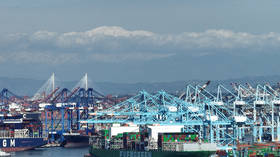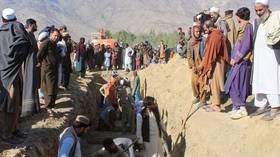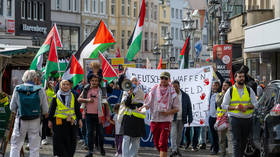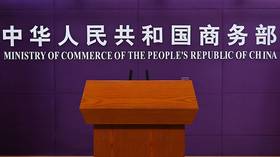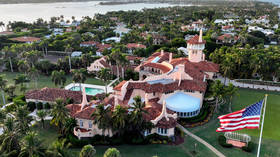Okruashvili still in Tbilisi despite speculation
Georgia's former Defence Minister, Irakly Okruashvili, has not fled the country and is still in Tbilisi, according to his lawyer, Eka Beselia. It had earlier been reported that he and his family had left Georgia after more than $US 6 million in bail was p
Okruashvili was released from custody in the early hours of Tuesday morning after admitting his guilt in corruption allegations and repudiating accusations he had previously made against President Mikhail Saakashvili.
The court said that he paid the record-breaking bail partly in cash and partly secured against his real estate, prompting questions as to how a mere minister could legally acquire such a fortune. His lawyer, however, claims he has no idea who paid the money.
Georgian President Mikhail Saakashvili said proceedings against the former Defence Minister have provided a test for the country's legal system.
The President insisted the case was handled in a civilized and democratic way, in accordance with European legislative norms.
Saakashvili added that fighting corruption is a high priority for the Georgian government.
The hawkish Defence Minister turned opposition leader is now avoiding the cameras in his Tbilisi home.
It was reported earlier in the day on a television channel belonging to influential tycoon Badri Patarkatsishvili that Okruashvili had fled Georgia along with his wife and children. Patarkatsishvili is the man Okruashvili had previously said the President had plotted to kill, before retracting the allegation in a televised interrogation on Monday.
The travel plans of Patarkatsishvili have themselves been the subject of speculation.
In his surprise confession, Okruashvili said he had only accused President Saakashvili of plotting to kill Patarkatsishvili in order to score political dividends for himself and the tycoon. Shortly after these comments were aired, Patarkatsishvili left the country, prompting reports that he had fled.
Returning to Georgia on Tuesday to find that he had been suspended as head of the National Olympic Committee, Patarkatsishvili dismissed these claims.
“I was supposed to take off for London yesterday at 11am. My American partners and I had planned a meeting there. In any case, it is a fact that we took off shortly after 1pm. Therefore, reports that I knew about Okruashvili's statements and that I flew away 15 minutes later is patently a falsehood,” Badri Patarkatsishvili stressed.
Meanwhile, Georgia’s opposition, which united following Okruashvili’s arrest, continues to promise large scale demonstrations on November 2. However, following Okruashvili’s shock confession, some are distancing themselves from him.
While Okruashvili’s arrest was the catalyst that united the opposition, his confession and release on bail may now be the factor that divides it.
Konstantin Kosachev, the head of the Russian State Duma Foreign Affairs CommitteeI have a feeling that yesterday's events surrounding the Okruashvili case have tarnished the image of Georgia as a so-called democratic country. It was a real pity to look at Mr Okruashvili. It is reminiscent of the Stalin era and the times when people were forced to admit crimes they did not commit under obvious pressure
Meanwhile, the Georgian President says the case has provided a test for the country's legal system. Mikhail Saakashvili made the comments at a conference in the Danish capital, Copenhagen. He insisted the case would be resolved in a civilized and democratic way in accordance with European legislative norms. Mikhail Saakashvili also added that fighting corruption is a high priority for the Georgian government.
However the head of the Russian State Duma Foreign Affairs Committee, Konstantin Kosachev, has said the Okruashvili case has raised serious questions over Georgia's democracy.
“I have a feeling that yesterday's events surrounding the Okruashvili case have tarnished the image of Georgia as a so-called democratic country. It was a real pity to look at Mr Okruashvili. It is reminiscent of the Stalin era and the times when people were forced to admit crimes they did not commit under obvious pressure,” Mr Kosachev stated.




